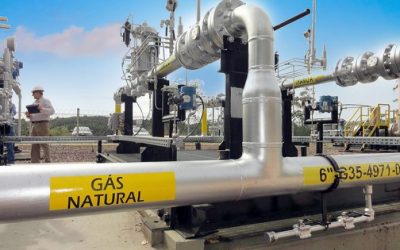Articles - 03/07/19
Brazilian government is taking actions to increase competition in the natural gas production and distribution

Petrobras currently acquires, transports and distributes the entire production of the natural gas in Brazil and, as such, it has been the relevant player in these markets. Although exploration & production can be done by other players, Petrobras dominant position in the transport and distribution has been a challenge for a more efficient natural gas utilization.
Petrobras plans to sell its assets on transportation and distribution of natural gas, due to its restructuring plans and as the result of an agreement reached with Brazilian antitrust agency, to avoid penalties that could be subject to due to investigations of anticompetitive actions in the sector.
With the proposed changes, the E&P companies shall have access to the distribution pipelines and may sell directly to the natural gas consumers, with the creation of a new market for free consumers, self-producers and self-importers. The natural gas produced in one state may be sold in another state, increasing competition and there shall be a reduction of prices for distribution. Analysts say there are still vacant capacity in the pipelines to transport the gas that can be fulfilled by the increase of natural gas production, taking into account the existence of discovered reserves not yet fully explored.
The reduction of the price on natural gas should be good news for reduction of costs of thermopower and for the industries. Reduction of price of gas could reach 40% in the next 2-3 years.
This movement has been coordinated by the government. The opening of the natural gas market may create investment opportunities estimated in around BRL 34 billions (USD 8.5 billions), according to the government estimates.
It appears that the new natural gas market would have similarities to the existing Brazilian power trading system, specially the free trading ambiance (Ambiente de Comercialização Livre – ACL).
In this sense, the Brazilian National Council for Energy Policies has issued the Resolution No. 16, published on June 24, 2019 (“CNPE Resolution”), setting forth principles for the transition to a competitive natural gas market:
- Preservation of the national supply and product quality;
- Increase of competition of the market, avoiding formation of regional monopolies;
- Stipulation of short but realistic schedules to adequate the natural gas agents to the new market;
- Mitigation of conditions that raise discrepancies of prices between the regions of the country;
- Coordination of the operation of the transport system by the independent transporters by means of uniform codes for the pipeline grid;
- Consolidation of the market areas aiming the increase of liquidity of the virtual point of delivery/negotiation of the product;
- Respect to the contracts and companies governance rules;
- Respect of the autonomy and strengthening of regulatory agencies and the antitrust authority;
- Integration of the natural gas sector with the power and industrial sectors.
CNPE Resolution established that the current dominant agent (Petrobras) shall:
- Sell the share it currently holds in transport and distribution entities;
- Define its demands in the entrance and exit of the transport system, allowing additional offer of transport services of the remaining capacity;
- Offer services of flexibility and grid balancing, to secure the national supply during the transition period or while other agents are not capable to supply such services;
- Cooperate in the transition of the for the new regime;
- Provide information to the market about the conditions for general access to third parties to its flowing, processing and natural gas terminals facilities
- Promote the natural gas sale program by means of bids and removal of barriers to allow the producers to sell their products directly
CNPE Resolution also makes reference that the transition shall be done in a coordinated way and includes the guidelines for the transition period, to be coordinated between the public bodies, observing the:
- Available transport capacity offer;
- Autonomy and independence of the transporters, and its di-verticalization;
- Creation of uniform codes for the pipeline grid; and
- Standardized virtual points of delivery/negotiation of the product.
The progress of the measures could bring good results for the Brazilian economy. We shall keep a close look on this.

